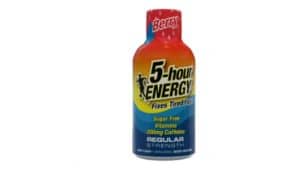With over $50 billion spent on dietary supplements each year in the U.S. alone, the question must be asked—are you wasting money on supplements? From multivitamins to fat burners, many people toss pills into their shopping carts expecting results—but are left with empty wallets and unchanged physiques.
Let’s break this down by the numbers, biology, and behavior so you can decide what’s worth your money and what belongs in the trash.
What Supplements Are People Overspending On?
Studies show that 60–70% of adults take at least one supplement daily. But that doesn’t mean they work—or that you need them. Here’s where most of the waste happens:
- Multivitamins: Often contain low-quality forms or dosages your body doesn’t absorb
- Fat Burners: Rely on caffeine and water loss for “results”
- BCAAs: Redundant if you eat enough protein
- Testosterone boosters: Rarely work unless clinically deficient
- Detox teas/pills: Expensive laxatives with no long-term value
💡 Mathematical truth: If you’re spending $40/month on a supplement that doesn’t move the needle, that’s $480/year wasted—money that could go toward quality food or training.
Which Supplements Actually Work?
Some supplements are backed by solid scientific evidence and math-based outcomes. Here are a few that give you real returns:
| Supplement | Benefit | Proven Effective? |
|---|---|---|
| Whey Protein | Muscle repair and growth | ✅ |
| Creatine Monohydrate | Strength, power, lean mass | ✅ |
| Omega-3s (EPA/DHA) | Heart, joint, and brain health | ✅ |
| Vitamin D3 | Immunity, bone health | ✅ (especially in winter) |
| Magnesium | Sleep, muscle relaxation, recovery | ✅ |
If your diet has nutrient gaps, a high-quality multivitamin with bioavailable forms (like methylfolate and chelated minerals) may be helpful—but don’t expect magic.
How to Know If You’re Wasting Money
Ask yourself these 3 questions:
- Can I get this from food?
If yes, start there. - Has this been proven in peer-reviewed research?
Google Scholar is your friend. - Do I feel or measure any improvement?
Track energy, recovery, strength, and sleep.
If the supplement doesn’t affect your body measurably in 4–6 weeks, it’s probably not worth the money.
Common Marketing Scams to Avoid
Supplement companies use deceptive tactics:
- ❌ Proprietary blends (hide underdosing)
- ❌ Celebrity endorsements over science
- ❌ Before/after photos with lighting tricks
- ❌ Buzzwords like “natural”, “detox”, or “clinically proven” (without references)
Always look for third-party tested supplements (NSF, Informed Choice) and clinical dose transparency.
How to Spend Smarter on Supplements
Use math and strategy like a trainer would:
- Calculate your nutrient gaps. Use a diet tracking app to spot low intakes.
- Prioritize staples: Creatine, protein, omega-3s, and D3.
- Buy in bulk or subscribe to save 10–15% monthly.
- Invest in quality brands with transparent labels and research backing.
Supplements are just that—supplements, not replacements for food, sleep, and consistency.
Key Takeaways
- Most supplements don’t work or are already covered by your diet.
- Only a few (like creatine, whey protein, and vitamin D) consistently show results.
- Track your nutrition and supplement effects to avoid wasting money.
- Avoid marketing hype—look for science-backed, third-party tested products.
- Spend smarter and let your fitness habits—not your supplements—do the heavy lifting.
External Resources
🧠 Smart Supplement Picks That Actually Work
Skip the hype. Invest in supplements backed by science:
- 💪 Optimum Nutrition Creatine Monohydrate – 5g Clinical Dose
- 🥤 Dymatize ISO100 Whey Protein – Fast Absorbing & Clean
- 🌞 NatureWise Vitamin D3 – High Potency, Third-Party Tested
“Don’t just take supplements—understand them.”
Join the Faith & Fitness Family
Subscribe now and get exclusive access to Bible-based fitness content and more!
Bonus: iPhone users get a 14-day free trial of our Faith & Fit workout app!
📩 Important: Please confirm your subscription within 7 days. Unconfirmed emails will be removed to help prevent spam and ensure we only send content to those who want it.
👉 Stay strong in faith and fitness — subscribe today!






